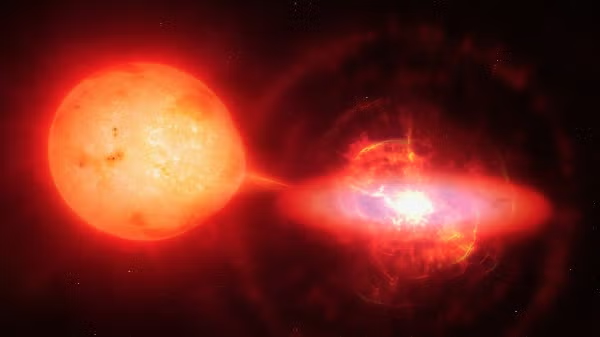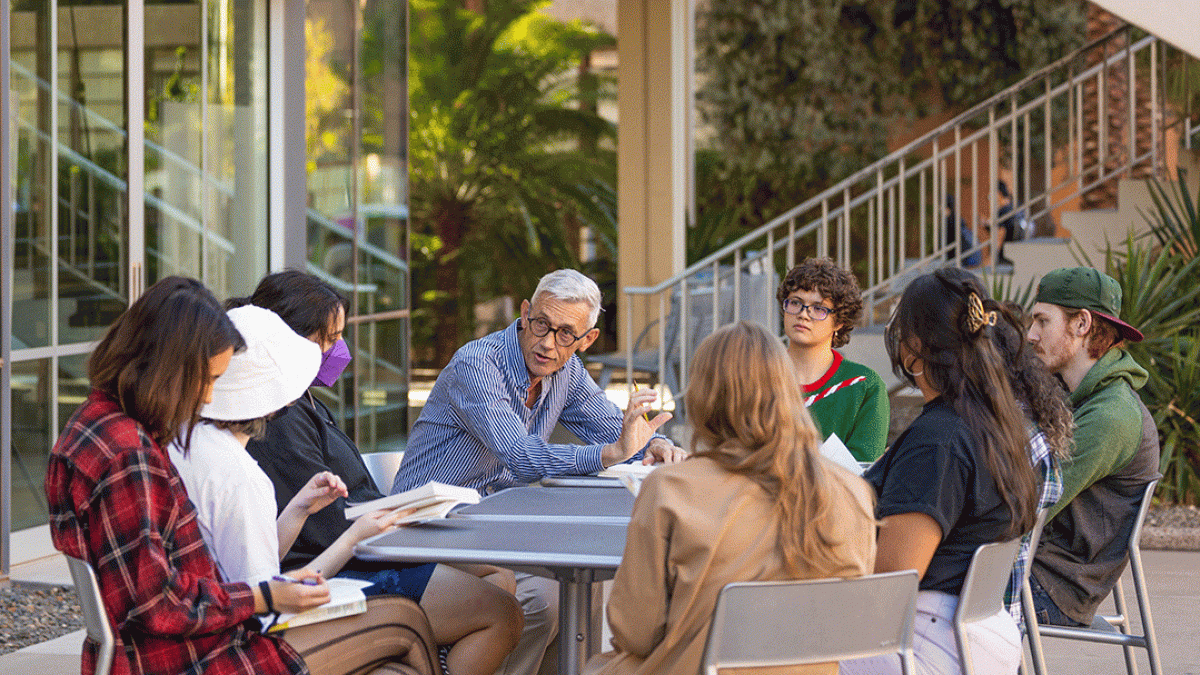This fall, Arizona State University students will have the opportunity to meet the challenges of the future in a new and innovative degree program.
The Bachelor of Arts in culture, technology and environment, offered by the humanities division in The College of Liberal Arts and Sciences, allows students to take a humanistic approach to addressing urgent issues surrounding:
Culture: understanding equitable and diverse global citizenship through the study of culture and language.
Environment: addressing climate change, biodiversity loss, pollution and environmental justice through the arts and humanities.
Technology: bringing humanities thinking to the human and ethical challenges of a world shaped by technology.
Video courtesy The College of Liberal Arts and Sciences
The new degree program launching in fall 2023 is the first degree that will draw from all three of the large, interdisciplinary schools of the humanities: the Department of English, the School of International Letters and Cultures and the School of Historical, Philosophical and Religious Studies.
“ASU refuses to limit the issues that students are passionate about and prepares students for success in a rapidly changing world. The problems we face are vast and we need every field of study to come together to solve them,” said Jeffrey Cohen, dean of humanities.
The program provides a toolkit for those who are looking to understand and address some of today’s most pressing issues around life on a globally interconnected planet, climate change’s devastating but unequal effects, and the ability of algorithms to disrupt democracy, creating humane technologies instead.
“You might think that these are science problems and political ones. But ultimately they are human issues,” said Jonathan Bate, Foundation Professor of Environmental Humanities. “It’s the disciplines of the humanities that teach us how to be human and how to imagine a better world.”
This degree, which is the first of its kind at any university, equips students with the knowledge to be able to answer some of the world’s biggest questions:
How can we cope with environmental change and extreme weather events?
How can we learn to live together in society, respect cultural differences and give opportunities to everyone, regardless of their background?
How are we going to adapt to the new technologies of the digital world?
Graduates of this program will be prepared to take on professional roles including law, journalism, nature and science writing, nonprofit leadership, and environmental analysis and activism.
“This degree offers students who may be interested in careers in the humanities or the sciences the chance to build career skills while being part of this interdisciplinary degree,” said Julia Himberg, professor of film and media studies. “The connection between the sciences is crucial. It’s a degree that bridges gaps between the humanities and sciences.”
Courses include English, film and media studies, history, philosophy, religious studies, languages and cultures, and a new curriculum that teaches students how these fields apply to the significant issues that societies and environments face.
“We will never change the world unless we change how we learn,” Cohen said. “This degree truly helps you to become a global citizen who can write and research well, act with passion and find humane solutions.”
Find out more information about the Culture, Technology and Environment program in The College of Liberal Arts and Sciences at ASU.
More Science and technology

Stuck at the airport and we love it #not
Airports don’t bring out the best in people.Ten years ago, Ashwin Rajadesingan was traveling and had that thought. Today, he is an assistant professor at the University of Texas at Austin, but back…

ASU in position to accelerate collaboration between space, semiconductor industries
More than 200 academic, business and government leaders in the space industry converged in Tempe March 19–20 for the third annual Arizona Space Summit, a statewide effort designed to elevate…

A spectacular celestial event: Nova explosion in Northern Crown constellation expected within 18 months
Within the next year to 18 months, stargazers around the world will witness a dazzling celestial event as a “new” star appears in the constellation Corona Borealis, also known as the Northern Crown.…


